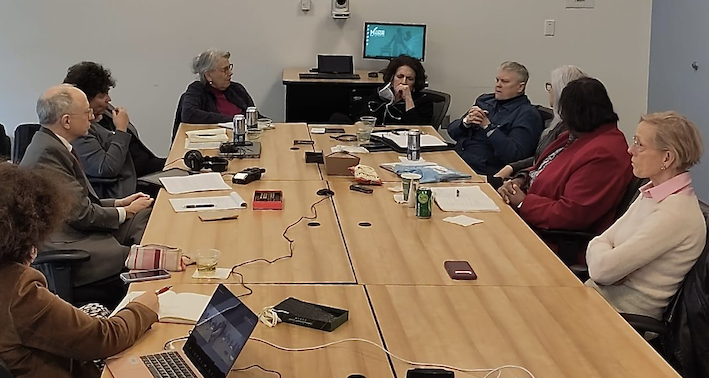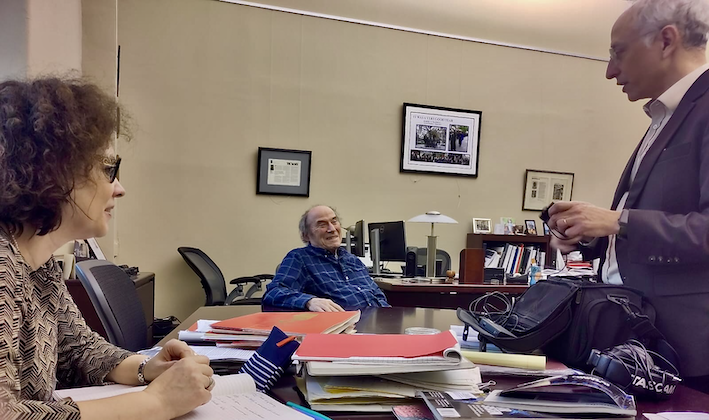Women's Issues in TransportationThis project is concerned with writing the history of the introduction and development of women and gender in studies and theories of transport and mobility systems. These theories analyze both the demand for transport in all modes and exposure to risk, including road risk, safety issues, and the conditions of transport-related occupations. The project seeks to understand the deployment of the issue of women's mobility and its consequences on 1) theoretical analysis, the development of new methodological tools but also on data collection and 2) the definition and implementation of transport policies at the level of operators, local and national public decision-makers and their articulation with other public policies relating to employment, health and education. The first studies, both academic and operational, on the needs and specificities of women's travel appeared in the second half of the 1970s. This work focused on two issues: that of women's mobility (type of trip, distance budget, time budget, modal choice, reason for destination) and that of their exposure to road risk (exposure to risk as well as the frequency and severity of accidents differ greatly between men and women, regardless of the geographical and institutional context). This project seeks to retrace this history based on several hypotheses. The first hypothesis of this work is that the introduction of the question of women in the field of transport is the result of a particular context, that of the 1970s. Two events forced a reconsideration of the all-car approach and the approach in terms of network flows. On the one hand, the oil crises made fossil fuels expensive and had a strong impact on mobility, and on the other hand, the 1972 peak in road deaths that all Western countries, in particular, experienced. The proponents of time geography and urban planners have put mobility back at the heart of the analysis by moving away from a purely network optimum approach. At the same time, public authorities, but also insurance companies, ask researchers to understand the mechanisms that cause accidents and to make proposals to reduce road mortality. The analyses therefore focus on the differentiation of road users in demographic, sociological and economic terms. The second assumption of this work is that those who have carried out the work on women and transport have from the outset displayed the need for a multi-disciplinary approach, overcoming disciplinary boundaries but also between actors and operators of transport systems. The third hypothesis is that the intellectual deployment that is taking place around the issues of women in transport systems is inseparable from the creation of the AME 20 technical committee in 1978 "Women's Issues in Transport" at the Transport Research Board of the American Academy of Sciences. The AME 20 committee spearheaded research and policy change in the United States and internationally. The methodology developed for this project is based on a cross between the history of ideas, the sociology of science, the history of geo-political and institutional contexts, and the philosophy of science and gender. Writing this history mobilizes different tools: an archival work, the analysis of academic productions, in particular the acts of the 6 conferences, but also on the organization of a seminar of the witnesses who founded the AME 20 technical committee of the TRB. The "witnesses" seminar will test the above hypotheses by studying the proceedings of the AME 20 "Women's Issues in Transportation" conferences and articles published over the past 40 years. Participants were selected based on whether they were founding members or members of the AME 20 Technical Committee and other AME 20s technical committees of the TRB but had included the perspective of women and gender in their working groups. The Witness Seminar is a process developed by the London School, particularly for the history of medicine but also for political science. The idea is to confront the memory of key participants to an event or to the emergence of a discipline or a theme with the reading that could be provided by a single analysis of the archives (academic articles, grey literature, correspondence, press).
The Witness Seminar took place on 12 January 2023. We brought together Sandi Rosenbloom, Beth Baker, Gloria Jeff, Susan Liss, Marsha Anderson Bomar, Maryvonne Plessis-Fraissard and Lidia Kostyniuk for the Witness Seminar. The seminar was moderated by Zachary Schrag (George Mason University). We then conducted individual interviews to deepen the discussions. We also conducted individual interviews in 2023 and 2024 with other actors involved in the emergence of this issue.
Some resources : Proceedings of the conference Women's Travel Issues: Research Needs and Priorities (1978) Proceedings of the Research on Women's Issues in Transportation conference (2004) Proceedings of the 4th Women's Issues in Transportation Conference (Vol. 1, 2010) Proceedings of the 5th Women's Issues in Transportation conference (2014) Proceedings of the 6th Women's Issues in Transportation Conference (2019) Thematic issue: National Academies of Sciences, Engineering, and Medicine. 2019. TR News May-June 2019: Women and gender in transportation. Washington, DC: The National Academies Press. https://doi.org/10.17226/28012.
|




